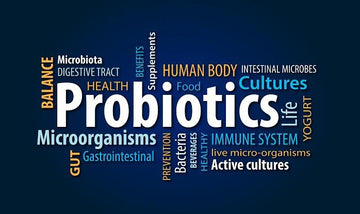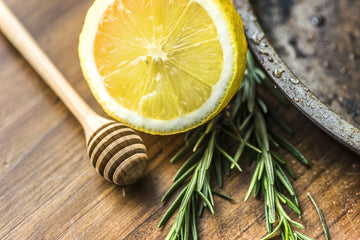A recent CNN report caught my attention: colon cancer risk could be rising for people under 50. A closer look into the study shows: even though it is still uncommon for young people to have colorectal cancer, what’s surprising is the sharp rise of the cancer rate: a millennial today would have twice the risk of colon cancer and four times the risk of rectal cancer, versus a person of the same age 40 years ago.
The reasons are unclear, but besides the genetic effect and environmental changes, some risk factors can be reasonably linked to the modern-day lifestyle. Unhealthy diet and sedentary lifestyle have caused America’s obesity epidemic, the proper functioning of our gastrointestinal system has been weakening, and symptoms like bloating, constipation, stomach cramp, etc. are troubling more men and women who look as normal and healthy as you and me.
I will continue to monitor this topic to see how the doctors and scientists will uncover the causes and come up with the measures to counter this rising health threat, but I am a firm believer of disease prevention through healthier lifestyle and better nutrition. Even without this article, I cannot emphasize enough, to people of any age, ethnicity, men or women, how important it is to keep your gut health in check, especially during the National Nutrition Month of March.

Why is your “gut feeling” so important?
Did you know 70% of human’s immune effect takes place in the gut? Your gut lining houses about 70% of the cells that contribute to your immunity. Without a well-balanced and properly functioning digestive system, you won’t be able to achieve an optimal state of health and energy, no matter how healthy you eat or how physically active you are, period.
And your “gut feeling” affects almost everything about your body, from food breakdown and nutrient absorption, to toxin elimination and weight loss, skin conditions, allergies, women’s health such as urinary tract infections, mood, and brain performance – yes, there is more light being shed on the “gut-brain axis”, because your bacteria composition in your gut also affects how your brain works, such as memory, concentration, and even mental health.
Considering your gut is populated by 100 trillion bacteria that keep our bodies working properly, we humans are as “bacterial” as “human cells.” Bad bacteria cause mishaps, such as disease or even cancer, and good bacteria (aka “probiotics”) counter the damages caused by the bad bacteria to nourish our system and keep it working.
How to keep your gut healthy?
Even though the odds of having colorectal cancer among the younger population are still low, we should do our best to keep our gut healthy, not only to prevent disease, but to get the most out of our everyday life feeling upbeat, energetic, clean, and clear, powered by a strong core of our amazing body system.
Many factors affect your gut health, but these are the most basic four areas I think are essential to your gut performance:
1. Live on a diet of real, fresh food rich in fiber, and steer clear from processed and sugary items.
I wouldn’t be surprised if one of the findings on the rising colorectal cancer rate in young people is due to the excessive consumption of processed and sugary food. Our bodies know how to digest the real, natural foods that feed the growth of probiotics and keep the gut flora environment balanced.
But the processed substances and sugar pervasive in today’s unhealthy eating habits can easily exacerbate the over-growth of bad bacteria, cause inflammation, and throw your body, hormone, and brain functions out of whack.
Try to eat real food rich in dietary fiber such as leafy greens and legumes for three days, and I bet you can experience the difference. The food waste after metabolism can be eliminated through bowel movement a lot easier when dietary fiber adds its bulking effect in the stool.
2. Move your body to assist in waste elimination
Feeling sluggish because you haven’t gone #2 for a few days? Time to shake things up. Regular physical exercise always help, but if you are not a gym person, some simple twists or yoga poses can help get things moving. Here are two simple twists to try:
- Lay down on your back, pull your knees into your chest, and twist your legs over to the right, then repeat to the left.
- Sit up straight in a chair, then turn to look over your right shoulder, keeping your hips straight. Twist your shoulders around as far as you can and feel your body wringing itself out.
3. Minimize the use of antibiotics and medications
It’s hard to stay away from the health hazards around us these days, and when we fall ill, we need to follow doctor’s instructions to take medications, often, antibiotics. But a strong dose of antibiotics can wipe out as many bad bacteria as the good ones – another reason keeping our immunity strong and staying away from medications as much as possible can have such an important impact on our body’s natural ecosystem.
If you have occasions of having to take antibiotics, ensure to supplement lots of probiotics as well to repopulate the good bacteria and keep your intestinal microbial environment in balance.
4. Take a vegetarian probiotic daily
Now that we understand the importance of probiotics, it really makes a difference when you intentionally supplement an ample amount of probiotics daily. Lots of wonderful food are sources of probiotics, such as fermented vegetables, e.g., kimchi or sauerkraut, dairy products of kefir or yogurt (check the sugar content and if you are lactose intolerant), and the exotic Japanese super foods such as miso, natto, kombucha…
If you are not that into the taste profiles of fermented food, taking a daily probiotic supplement is a good way to go, although not all probiotics are created quality, and the quality is key.

I searched for the right probiotic all these years until I had to create the best one myself – yes, I sourced all the way from Japan, a clinically proven strain of bacteria, Lactobacillus Casei K-1, the chosen winner by the Japanese scientists out of 300 types of bacteria from fermented rice– now, you can enjoy the benefits of a vegetarian, dairy free and gluten free probiotics, without having to deal with fermented rice.
Consuming Lactobacillus Casei K-1 at 100mg per day (100 billion CFU) for 2 weeks has been clinically proven to improve bowel movement in stool frequency, amount, and shape for those who are constipated. That’s exactly the daily dose of 2 small, easy to swallow spheri-gels of our sho Balance probiotic supplement.
Because it’s a clean, vegan formula that’s also a dairy free and gluten free probiotics plus the extra benefits of prebiotics, spirulina, flaxseed oil, and olive oil, it’s suitable for anyone, including the lactose intolerant and gluten sensitive.
Plus, it’s one-of-a-kind, portable, daily tracking dispenser packaging makes daily supplementation a simple healthy habit.
Now more than ever, working so hard on everything else but not taking care of your own “gut feeling” is doing a large disservice to yourself. Regardless of whether you think the “c” word of “cancer” would ever have anything to do with you or not, taking care of your gut health is essential to every aspect of your wellbeing. It’s time to self-reflect and make positive changes as needed.








